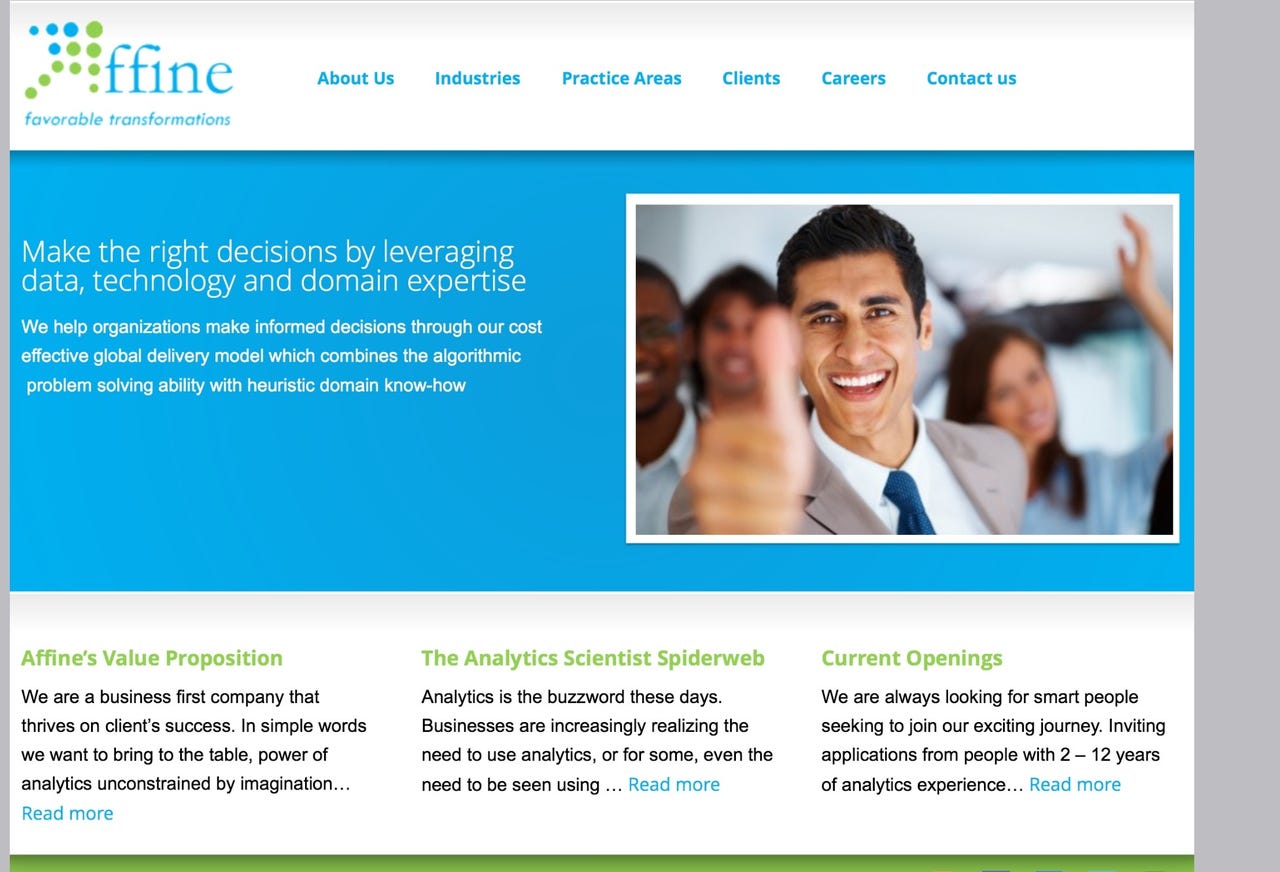India startup looks to tap big data growth

Big data has been the talk of the town and is taken seriously by a lot of organizations and businesses in today's emerging technology world. Today a lot of brands, tech pundits, major organizations, and even startups are using big data to transform the way they do business.
Be it in marketing, financials, sales, training, and research, every other buisness out in the world is taking help of big data analytics to get ahead of the game and gain that competitive edge over their competitors.
One such startup from Bangalore that's tapping this market is Bangalore-based startup, Affine Analytics. The company was officially launched in February 2011 by three co-founders, Vineet, Abhishek, and Manas. Having come from entrepreneurial backgrounds, all three foundersb were highly strung to start their own business. Another passion they shared was the love for analytics and aspiration to make a difference in the way businesses are run. This passion took the form of Affine.

The startup is aspiring to bring about transformation in decision-making processes by making them more scientific, measurable, and self-learning. One of the most interesting and important services it offers is predictive modeling, which is becoming a hot trend within the big data space.
Predictive modeling offers a clear view of the present and deeper insights into the future, especially since it effectively uses datamining, machine learning, and predictive analytics which are essentially data-driven approaches.
Certainly there are larger companies like Genpact and MuSigma and others that have dabbled in this space, including large IT services companies and consulting companies. However as a startup, Affine may have the edge. It helps customers create verticalized big data analytics applications to accelerate the delivery of products, saving up to 50 to 60 percent in delivery time while increasing performance accuracy.
Overall, Affine offers analytics tools targeted at four key verticals: retail, e-commerce, banking, and telecommunication. Some of the product sets and frameworks take the form of horizontal offerings and cut across industries.
Asked why it is focusing on the U.S. market rather than targeting Indian businesses, Manas said: "The market in India is still at a nascent stage while the U.S. market has evolved over a period of time. Today the market is seeing multiple players foraying into analytics, but the practice is to primarily to provide manpower or products."
At the same time, he added that while the company's initial thrust was aimed at the U.S. market, it has since increased focus on the Indian market and plans to further expand into emerging markets. He said organizations were open to the benefits of adopting business intelligence and analytics in making business decisions, and Affine has customized its offerings for clients in the Indian market, including introducing a service product designed for SMBs (small and midsize businesses) in the growth phase. He added that the startup is seeing good growth in the retail space, especially in apparel and hospitality.
Manas said the team at Affine strives to be different and has gone beyond just productizing analytics. It aims to cater to all sizes of businesses, from SMB to large enterprises, but it is currently working on an e-commerce analytics platform that will be offered at minimal cost, he said.
He noted that Affine's value proposition was simple: to provide actionable and measurable decision-support systems, built on complex analysis and developed efficiently by leveraging the right technology components. "We do not ask clients to deal with the complexities of numbers. We do the math and give business recommendations for improved business strategies," he added.
Telecom companies, for instance, can reduce customer churn and improve conversion rates dramatically by using some advanced analysis parallel to the ones currently used by FaceBook, he said. In the e-commerce space, Manas said Affine can help companies increase the elusive conversion rate by providing individualized recommendation for each visitor based on sophisticated matrix calculations, based on highly unstructured and massive search results data.
Affine targets to move into the US$20 million runrate bracket by mid-2014, with 30 to 40 percent revenue coming from productized services. This growth hopefully will then enable the company to secure the right funding, he said.